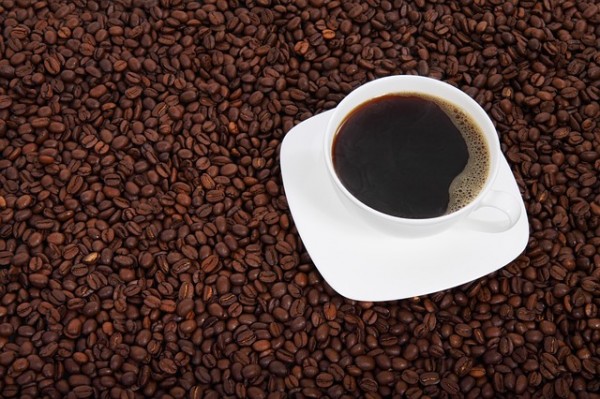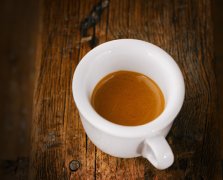What's the difference between instant coffee and freshly brewed coffee and freshly ground coffee? What is the impact on health?
For professional baristas, please follow the coffee workshop (Wechat official account cafe_style)
Every time I explain the health effects of coffee, someone will ask: where is instant coffee?

The questioner wants the answer to be simple, rough, "the same" or "different". But the truth is not so simple for two reasons:
1. Instant coffee is really different from freshly brewed coffee.
2. What people call "instant coffee", especially the "instant coffee" in the Chinese market, is often not the same thing as "instant coffee" in the scientific literature.
First of all, let's say that coffee is in line with the realization of "instant".
Coffee is the extract of coffee beans. After roasting at a high temperature of more than 165 °C, raw coffee beans undergo complex reactions and produce many aroma substances. This is the same as the essence of various "fragrance" processes of tea. Roasted coffee beans can be sold directly and "freshly ground" before cooking, or they can be ground into coffee powder and re-sold and directly used by consumers. Either way, to brew coffee is to use hot water to extract the soluble substances from the coffee powder. This is actually the same as making tea.
Instant coffee is made from ground coffee powder. Currently brewed coffee is extracted with boiling water, while instant coffee is extracted with high-pressure hot water at a temperature of up to 175 °C. With higher temperature, the extraction speed will be faster and the extraction rate will be higher. However, the composition of the extracted substance is somewhat different from that of freshly brewed coffee.
When these extracts are dehydrated and dried, soluble powders are obtained. The simplest way of drying is naturally to heat and evaporate. However, it is inconvenient to operate in this way, and some of the aroma substances will be lost in the heating process.
In industry, the two commonly used drying methods are vacuum freeze drying and spray drying.
Vacuum freeze drying is a mature military technology in World War II, which was transferred to civilian use after World War II, and dried coffee powder is one of the applications. In this process, the coffee extract is frozen into ice cubes and frozen to dozens of degrees below zero. This temperature can maximize the protection of coffee composition does not change. The extract, which is frozen into ice, is then vacuumed, and the ice is directly sublimated into a gas, which freezes into ice in another container. When the water in the coffee extract is almost completely sublimated, the dried coffee powder is obtained.
This drying method can maximize the flavor of coffee, so it is very popular. But its defects are also obvious-no continuous production, inconvenient operation and high cost.
Spray drying can just overcome these disadvantages, and it will be used more widely. The principle of this drying method is that the coffee extract is sprayed into a fog under pressure through a sprinkler. Fog is tiny droplets one by one. These droplets are mixed with hot, dry air, and the water is quickly evaporated, turning the remaining coffee ingredients into dry powder particles. These dry powder particles fall to the bottom of the drying tower, which is the finished "soluble coffee powder". However, these coffee powders are so fine that they are "soluble" in hot water, but they are easy to "pick up" and difficult to disperse, so other processes are often needed to make them gather into larger particles in order to become "instant coffee powder".
The technological process of spray drying is simple, it can be produced continuously, and the cost is obviously lower than that of freeze drying. However, the hot air exposed to the spray is so hot that the coffee ingredient is heated again. In this heating process, there will be some reactions between coffee ingredients, thus changing the flavor, in addition, there are some volatile aroma substances volatilized. Therefore, spray drying has great advantages in production, but the product quality is not as good as freeze drying.
In scientific research, coffee refers to "black coffee" without sugar and companion; the instant coffee used is the "pure" instant coffee powder obtained in this way. Generally speaking, 1 gram of instant coffee powder is added to 100 ml of boiled water, which is equivalent to the concentration of freshly brewed coffee. In foreign countries, when people say instant coffee, it generally refers to the coffee brewed in this way. Compared with freshly brewed coffee, its flavor and taste are different, but there is not much difference between caffeine and various polyphenols, the core ingredients of coffee. Therefore, such instant coffee is also applicable to the health effects of coffee mentioned in scientific research.
However, such instant coffee is not very popular in Asian countries such as China, South Korea and Japan. Most of the "instant coffee" that people come into contact with is composed of sugar, plant fat powder, emulsifier, dispersant and so on. They are actually "coffee beverage mixtures", and "instant coffee powder" is only one of them. For example, instant coffee powder is added with fat powder or sugar to become "two-in-one instant coffee". Or plant fat powder and sugar are added to become "three-in-one instant coffee" or "1-2 instant coffee". In such products, the "bag" of powder used to mix a cup is usually 15 grams, including about 11 grams of sugar and more than 2 grams of fat. If you want to consider the health effects of this "instant coffee", then fat and sugar are the main factors, while coffee itself is not so important.
Important Notice :
前街咖啡 FrontStreet Coffee has moved to new addredd:
FrontStreet Coffee Address: 315,Donghua East Road,GuangZhou
Tel:020 38364473
- Prev

Cockroach feet appear in coffee! McDonald's in Bangkok apologizes
For professional baristas, please follow the coffee workshop (Wechat official account cafe_style) McDonald's coffee is suspected to have cockroach feet. McDonald's publicly apologized for its coffee sold at a branch in Bangkok, Thailand, when it was found to be suspected of being cockroach feet. According to the "News Asia" (CNA) report, Thai netizen Nostalgic Eik on Tuesday (17th) in Facebook Zhang
- Next

Coffee is antioxidant and anti-inflammatory. Drinking coffee is the easiest way to live a long life.
Professional barista communication Please pay attention to the coffee workshop (Wechat official account cafe_style) to live a long and healthy life, the most living way may be to drink coffee, and it is best to drink more! As early as May 2012, the National Institutes of Health (NIH) published the results of the study on the effect of coffee on mortality in the authoritative New England Journal of Medicine. This study.
Related
- What grade does Jamaica Blue Mountain No. 1 coffee belong to and how to drink it better? What is the highest grade of Blue Mountain coffee for coffee aristocrats?
- What are the flavor characteristics of the world-famous coffee Blue Mountain No. 1 Golden Mantelin? What are the characteristics of deep-roasted bitter coffee?
- Can I make coffee a second time in an Italian hand-brewed mocha pot? Why can't coffee be brewed several times like tea leaves?
- Hand-brewed coffee flows with a knife and a tornado. How to brew it? What is the proportion of grinding water and water temperature divided into?
- What is the difference between Indonesian Sumatra Mantinin coffee and gold Mantinin? How to distinguish between real and fake golden Mantelin coffee?
- What does bypass mean in coffee? Why can hand-brewed coffee and water make it better?
- Unexpected! Ruixing Telunsu lattes use a smoothie machine to foam milk?!
- % Arabia's first store in Henan opens into the village?! Netizen: Thought it was P's
- Does an authentic standard mocha coffee recipe use chocolate sauce or powder? Mocha Latte/Dirty Coffee/Salty Mocha Coffee Recipe Share!
- What is the difference between Vietnam egg coffee and Norway egg coffee? Hand-brewed single product coffee filter paper filter cloth filter flat solution!

